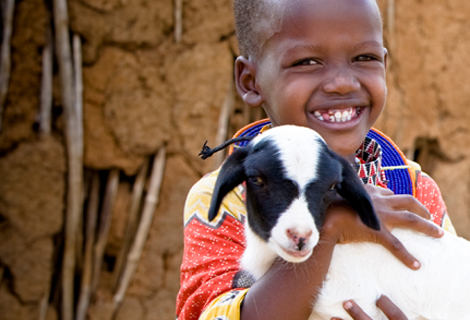The difference chickens can make
17 years ago when Bee was just a baby he lost his father, and his mum, Esnart was struggling to feed the family. Fast-forward to today and the family is thriving; they often help to support other families in need in their community. Change all began with the arrival of some chickens from World Vision’s Must Have Gifts catalogue.
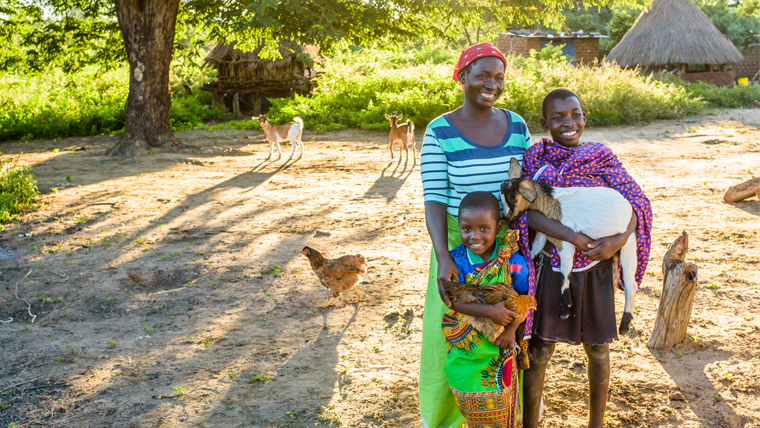
Four-year-old Chansa’s life is easier than many other children in rural southern Zambia. He’s not malnourished. He’s physically healthy. He doesn’t have to walk for miles to gather water. And his family has reliable income so that when he’s old enough, he’ll be able to attend school. Unlike many in the region, the family has the money for the fees, uniforms, and school supplies.
But school for Chansa is still a few years in the future. Right now, he’s content to spend his days at home with his grandmother, Esnart. Sometimes he plays soccer with his uncle, nine-year-old Resheal, who’s more like a brother to him. Life is good for these two boys.
But his grandmother Esnart, who is also Resheal’s mother, remembers a time when the family only had hunger and heartache.
Esnart’s first husband died in 1999, leaving her to care for her children and elderly mother.
“When he died, the story turned upside down,” says Resheal’s older brother, Bee, now18 years old.
“It was easy to notice the difference. I used to wear nice clothes. I used to eat every day.”
Bee excelled in his studies, but without food to fortify him, he faltered. “My performance was being affected. I couldn’t concentrate,” he says. He had to repeat sixth grade because he missed a full term. “It was hard to cope with hunger.”
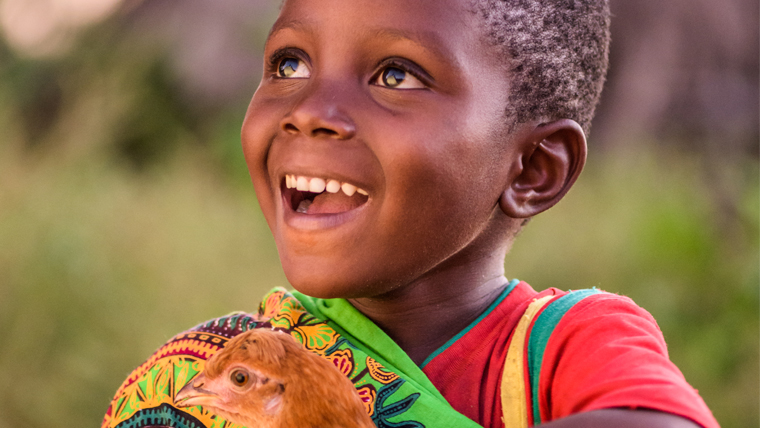
When Esnart finally found work, she was earning just a bit of mealie meal, ground corn that’s used as a staple in Zambia. Sometimes that was all the family would eat for a day, and many times they had no food at all.
Esnart’s own struggles with hunger were nothing compared to the guilt and anguish she felt over watching her children suffer. The children came to her and said,
“’Mummy, we are hungry. We need food.’” She sometimes ran away from them into the bush just to sit alone with her grief. “Why are my children going through all this? What am I going to do? Am I going to be able to see them reach their potential?” she would ask herself.
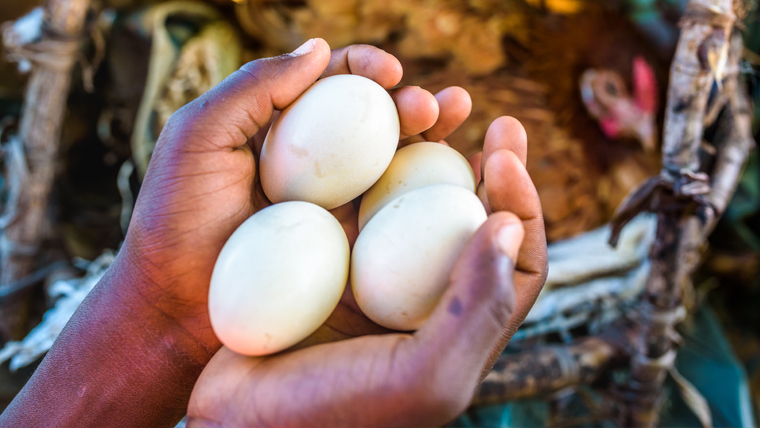
Esnart remarried in 2003 and hoped things would improve, but frequent fights between husband and wife meant there was no return to the golden days of her first marriage. After a few years, Esnart became deathly ill. Her husband didn’t take care of her, so she took her children and returned to her home village to recover from her illness.
A few visits from her husband and attempts at reconciliation left Esnart pregnant with her youngest child, Resheal.
Ultimately the marriage failed, but things did begin to look up for Esnart’s family. It came in the most unlikely of forms - chickens.
Hope arrives
Esnart and her family received four chickens and one rooster through World Vision’s Must Have Gifts.
We taught the family about livestock management when the chickens arrived. Experts educated them about the right foods to feed the chickens so they would produce more eggs, multiply, and thrive.
When the chickens arrived the family named them. “I gave them names because those chickens were a gift,” Esnart remembers with a smile. “I had a special relationship with those chickens.”
From the five original chickens, by the end of the year the flock numbered 200 roosters, 124 chickens, and eight baby chicks.
As a young child Resheal developed a knack of knowing which hens were ready to lay eggs. He would hunt out their roosting places, collect the eggs and start boiling his finds before anyone else in the family. To this day, his favorite food is eggs with beans.
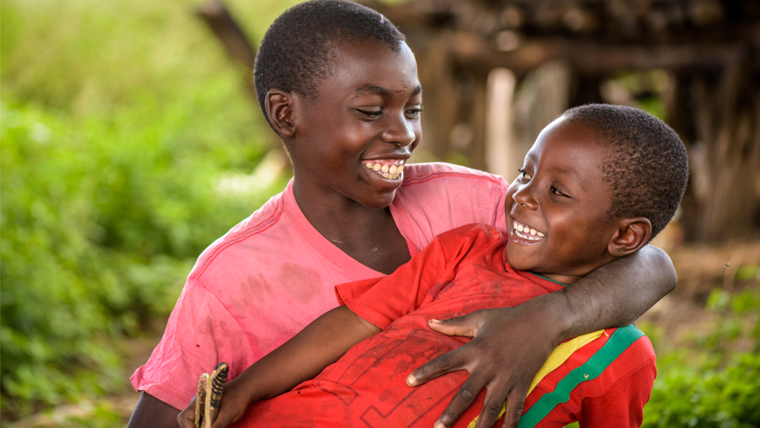
First came an egg, then a brighter future
The chickens acted as a sort of savings bank for the family. Esnart began selling chickens to local restaurants. Through those sales, Esnart bought turkeys and cattle along with seeds and fertilizer to increase the size of her garden.
“The chickens have been a foundation,” says Esnart. “Without these chickens, my family would have been wallowing in poverty.”
This past year El Nino has led to drought across southern Africa, causing crops to fail and people in southern Zambia to face hunger. Thanks to the chickens and the work our staff have done to train farmers on drought-resistant crops, many families like Chansa’s aren’t feeling the pangs of hunger.
Chansa and his uncles will also have access to a better future. “I chose to educate my children because I wanted them to live a better life later in the future, not a difficult life, like what I had myself,” Esnart says.
The animals allow Resheal and Bee to stay in school, and both boys dream of being doctors.
Resheal is already starting to work on his medical skills. When his elderly grandmother stepped on a thorn, he tenderly pulled it from her gnarled foot. It was good practice for the nine-year-old doctor in waiting.
“I want to be treating people. I want people to live a healthy life and I would want to take people out of their old life,” he says, his megawatt smile lighting up his whole face.
Chansa looks up to his uncle Resheal, and spends much of his time following after Resheal when he isn’t at school. When they’re not playing, sometimes Resheal brings Chansa with him to get water from a nearby borehole. But what Chansa really wants to do is go with Resheal when he herds the goats.
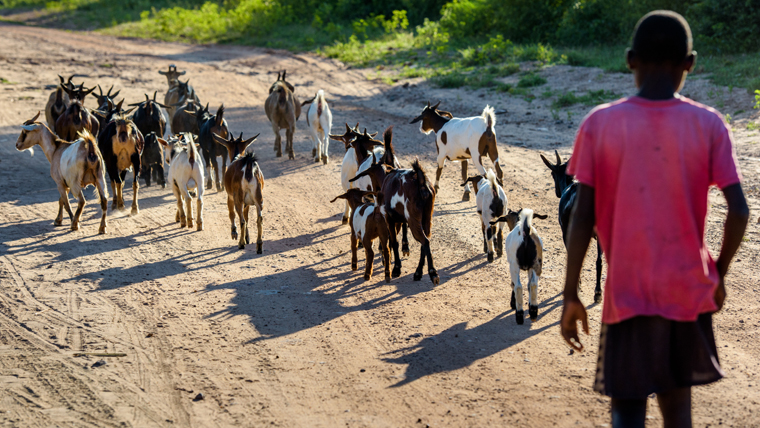
Another gift arrives
The goats arrived a couple of years ago for Resheal, another gift from our Must Have Gift catalogue. He feels so responsible for them that sometimes he’ll skip lunch to stay out in the field because he worries that something might happen to them. When he first got the goats, he says, “I spent time gazing at them.” Like the chickens, the goats multiplied. The family now have more than 30 goats.
In addition to the Must Have Gifts, the boys are also receiving support from their sponsors, thousands of miles away. Resheal’s sponsor has sent him clothing, and Bee’s donated extra money, which allowed Bee to reroof his room and buy a wooden bed, the first bed he’s ever owned.
The children think of their sponsors often and warmly. “If we meet, mostly I would want to thank him so much from the bottom of my heart because he has done so much to help me,” says Bee.
Since the arrival of the animals, life for Chansa’s family has also improved socially. In rural Zambia, a person’s worth is often measured by the number of animals they. “In the past, when I lacked all these things, nobody could even walk to my home,” Esnart remembers. “They shunned me because I was poor.”
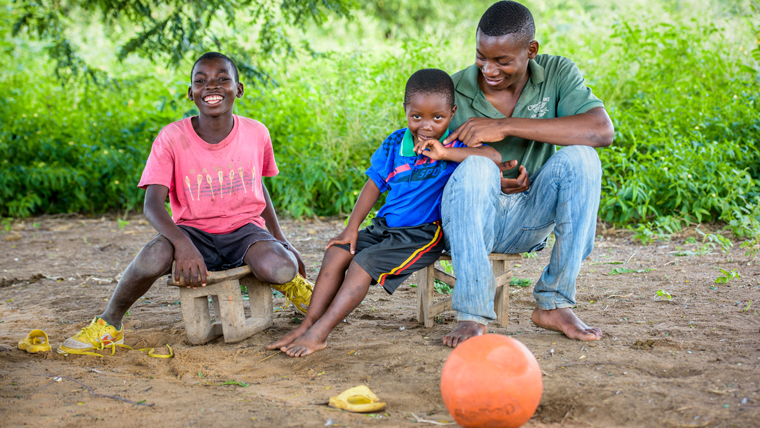
Now many people in need come to Chansa’s family, and his grandmother never turns anyone away. If someone asks for a chicken to feed their family, they are given it free of charge.
Bee says, “One friend came and said he did not have a blanket. I did not deny him one because I realised problems need to be shared. So, I gave him a blanket.”
Chansa and Resheal are learning these same lessons in generosity, but thankfully they haven’t learned the hard lessons of want like Bee did. They’ve never had to wonder where or whether a meal is coming, and they won’t ever feel hunger gnawing at them as they struggle to learn.
Instead, they will be free to grow to their full potential like Esnart dreams.
World Vision’s Must Have Gifts catalogue works with our communities to identify the most vulnerable families and ways in which to help them. Gifts make a real difference to children like Chansa and Resheal, creating a catalyst for lasting change. You can find out more about our gift cataloque here.
